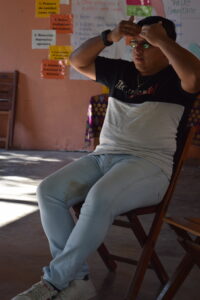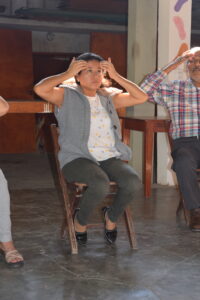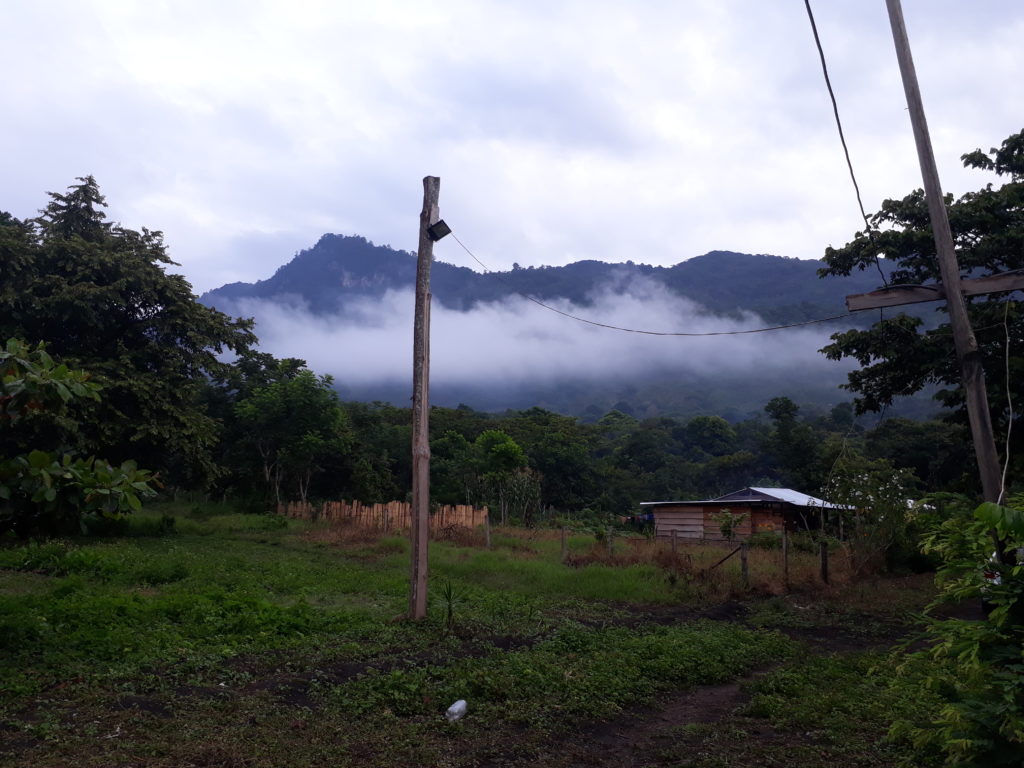Women
Elena Huegel serves with the Intercultural Research and Studies Institute (INESIN) in Mexico.
Bats’il antsetik means true women in Tseltal, one of the Mayan languages spoken by many people in the Chiapan highlands of southern Mexico. Women who are known as bats’il antsetik are those who have found their place in the universe, have integrity, and are guiding others on the path to finding their true selves. True women have “nokal yo’ta” which means that their hearts inhabit inside them, they are at ease, and balanced. They are women who weave dignity, peace, and the fullness of life for all.

Sometimes it seems like men are mostly absent from the daily life of women in the small Mayan communities served by the Institute of Intercultural Studies and Research, a Global Ministries partner. Men used to travel seasonally from the Chiapan highlands to the Pacific coast, going and coming every year, until a blight deeply affected the coffee production on the plantations where they worked. Now they are forced to travel further away to find the means to sustain their families. Women must take over most of the food growing tasks at home as well as raising children. Today, many young men, and young women, too, are either migrating to agricultural fields in northern Mexico or to the Mayan Riviera to work in construction or behind the scenes in the tourism trade.
As many young people leave their communities to seek better opportunities, grandmothers, the bats’il antsetik, hold the keys to tradition and culture, the sense of dignity, “ichel ta muk,” the knowledge of the greatness of all living things despite the constant shaming, oppression, and injustice they face not only as indigenous people but as women.
It is a privilege to be able to share with you the story of one such woman and the truth that she teaches and shares.

“I never told my children, but I will tell you now. In the past, we women have been kept silent, but now it is time to speak out. When I was a girl, and sometimes it still happens, young men would go to the village on market day to scout out the girls, even as young as eleven or twelve years old, and choose their brides. They would decide, ‘this market day, we will kidnap the girl of your choice, you can take her for your wife, and she will be yours. Then you will help the rest of us the next market day.’ My older sister was twelve when she was kidnapped. They locked her in a shed, but after dark, when the man that was to be her husband was drunk from celebrating with his friends, she escaped. She ran home. But my father beat her. He said she was no longer his daughter, but another man’s wife. My mother sent her away to live with my aunt. At that moment, I decided this would not happen to me. I begged my father to send me to the city to work.
At age 13, I was loaned to a lady in Mexico City, for room and board and a tiny bit of income. I rode twenty-four hours on a bus by myself to my new home, and even though I was very nervous and afraid, I knew it was the right choice. The cook in the lady’s house took me under her wing. She taught me to be a good housekeeper, and I learned how to bake bread, sew, knit, and even read and write. None of the women in my family know how to sign their names. I learned to speak Spanish. I saved what I could of the money I earned. For fifteen years I worked for this family in the capital city. Then one day, the son got married, and he and his new wife moved back to Chiapas, about five hours away from my parents’ home. The new wife said she needed an experienced maid to help with the housework and the baby on the way. I was sent to Chiapas; no one thought to ask me if I wanted to go.
The new wife was not kind. After three months of being mistreated and nearly starved, (my new ‘patrona’ said she did not want to waste food on a maid), I escaped and went back to my parents’ home. I told myself, “Never again will I depend on another person for any bite of food I eat.” To this day, I have no money, but we have a small plot of land. I no longer work for a mistress, and I grow everything my family needs to eat. I have ‘lekil kuxlejal,’ abundant life. This is why learning to grow good, nutritious, food with the staff from the Institute of Intercultural Studies and Research is so important to me.
So many of my Mexican sisters, some indigenous and some not, my age and some younger, started their married lives as kidnapped brides. Sometimes I wonder if that horror is the hidden wound that festers beneath the inexplicable violence of our country. I said “no” to that way and chose my own life. I am exhausted from fighting the current violence against women, but I hope that my struggles will make a new way for my daughters and granddaughters. I weave, just as my mother and grandmother before me, but I have created my own patterns. I honor our ancient, live-giving traditions and truth while I let go of that which destroys my dignity and that of my daughters and granddaughters.”
Our God, you who are the Heart of the Sky and Heart of the Earth, you have heard our prayers. Gift us with your abundance. Thank you for your forgiveness. Bring blessing to our hearts; bless our earth, air, water, and fruits so that we might always be defenders of life. And so, bless our hearts with simple joy.
(Prayer from materials produced by Institute of Intercultural Studies and Research.)
Elena Huegel serves with the Intercultural Research and Studies Institute (INESIN) in Mexico. Her appointment is made possible by your gifts to Disciples Mission Fund, Our Church’s Wider Mission, and your special gifts.

